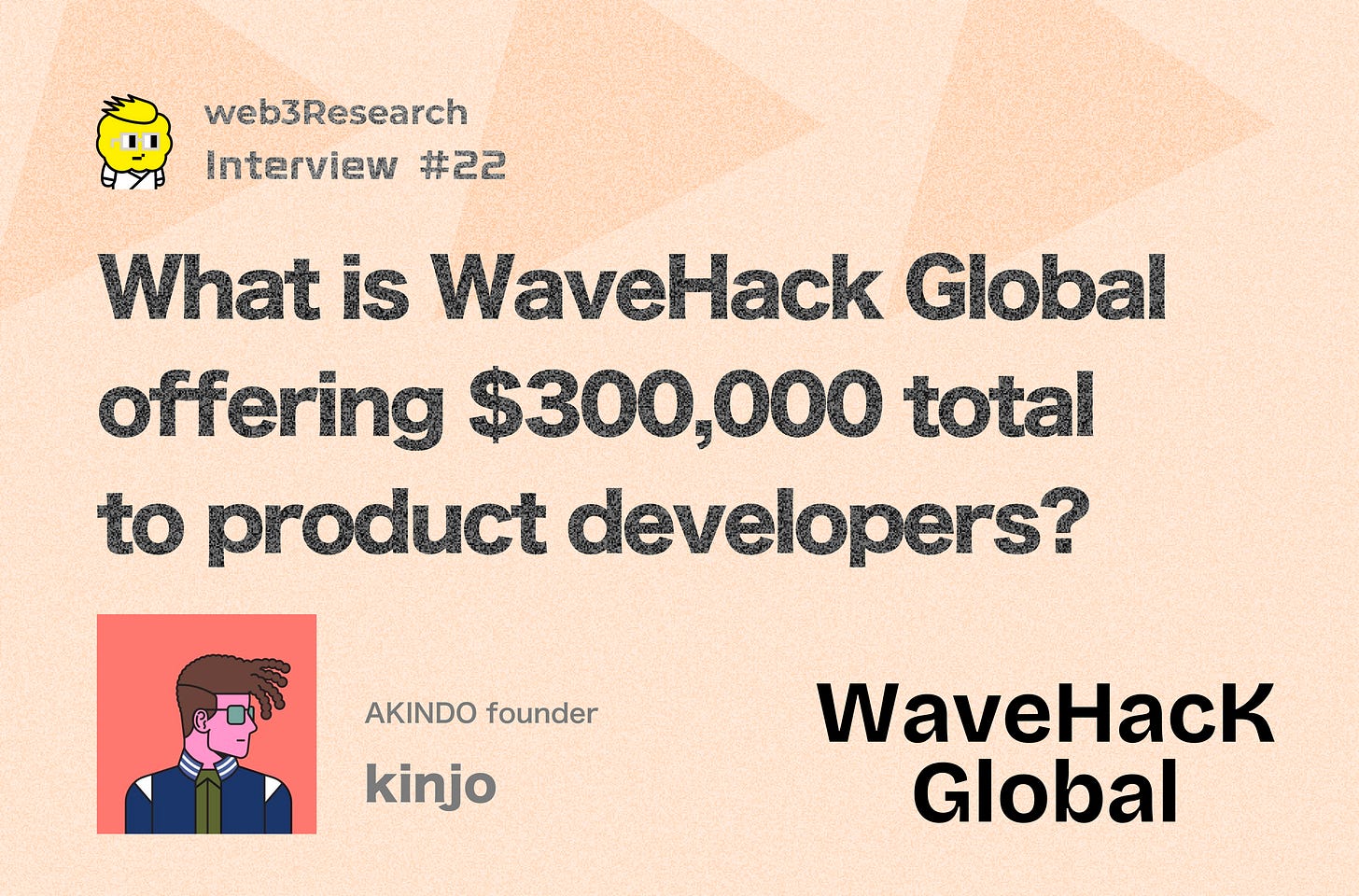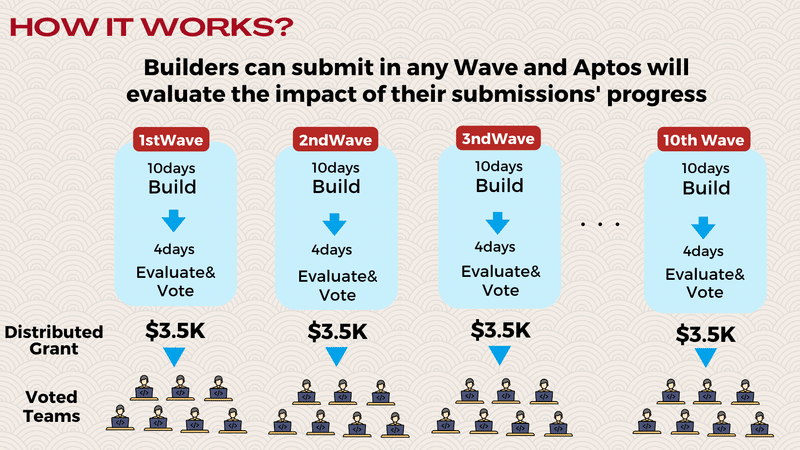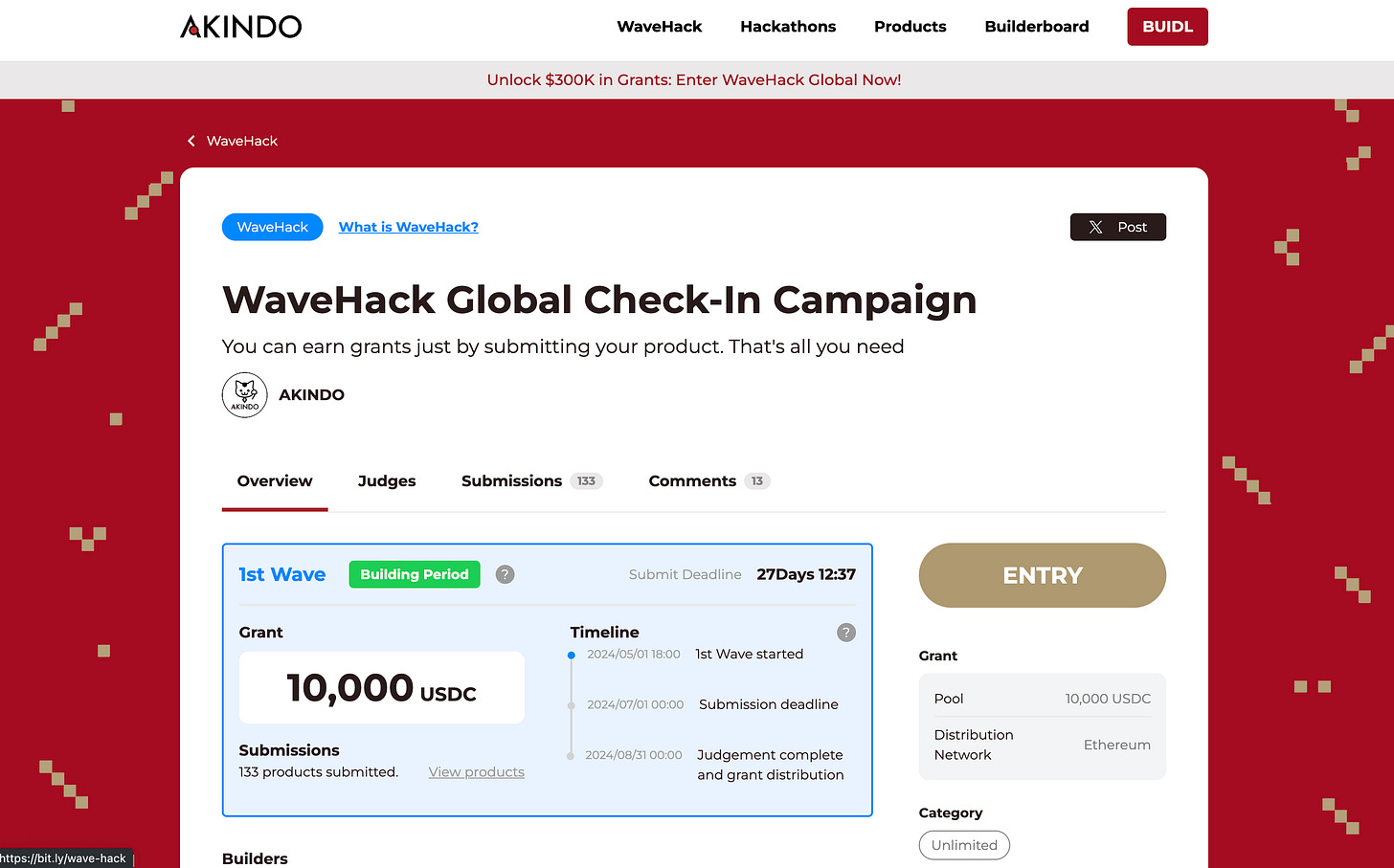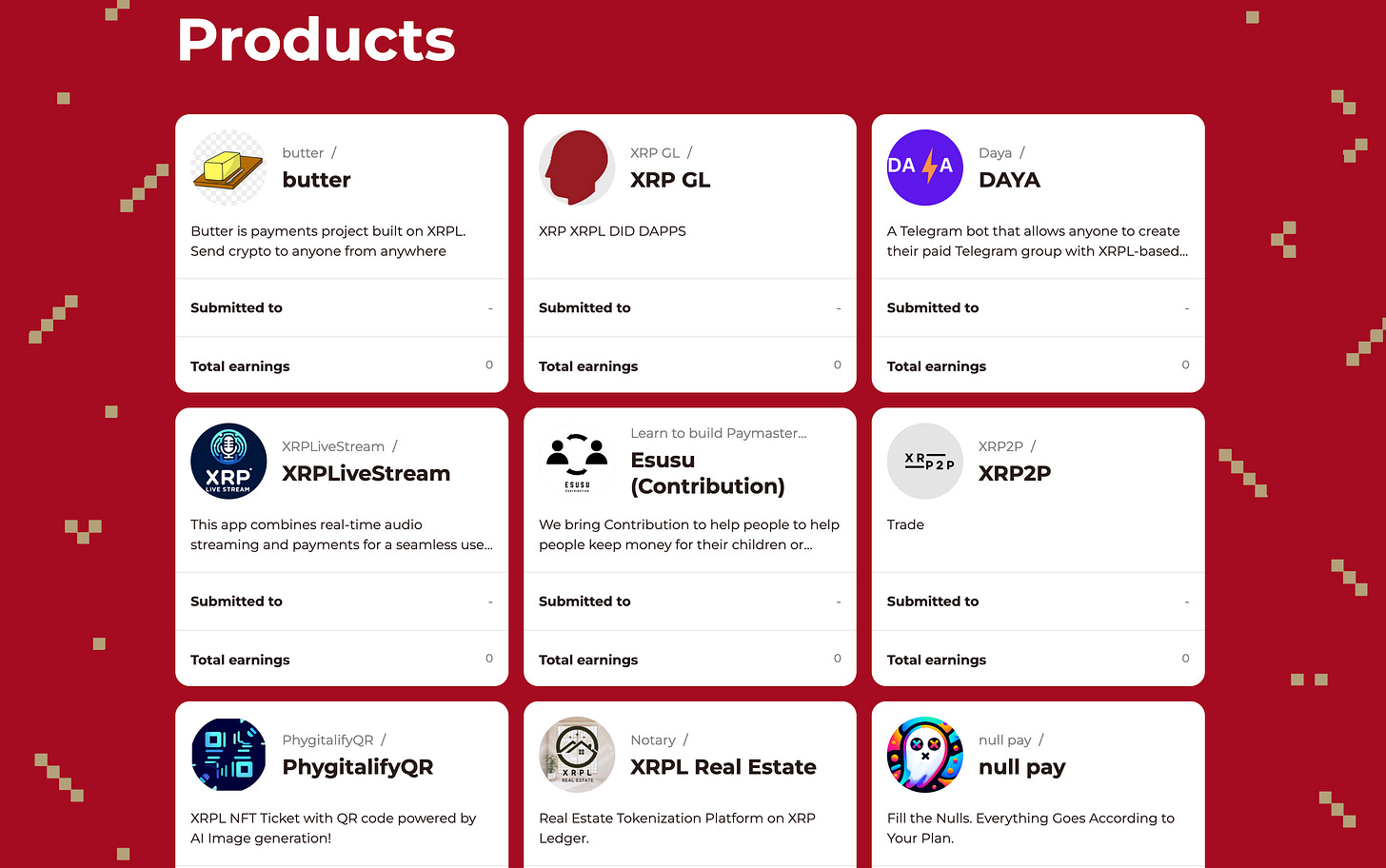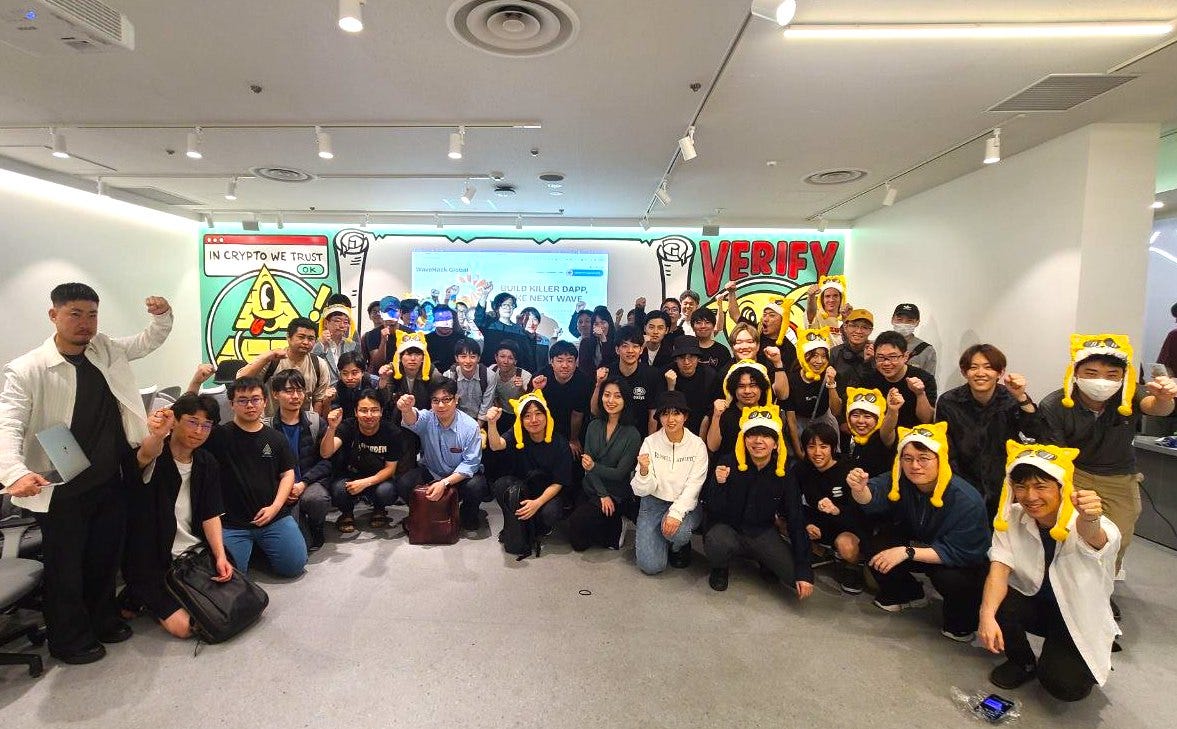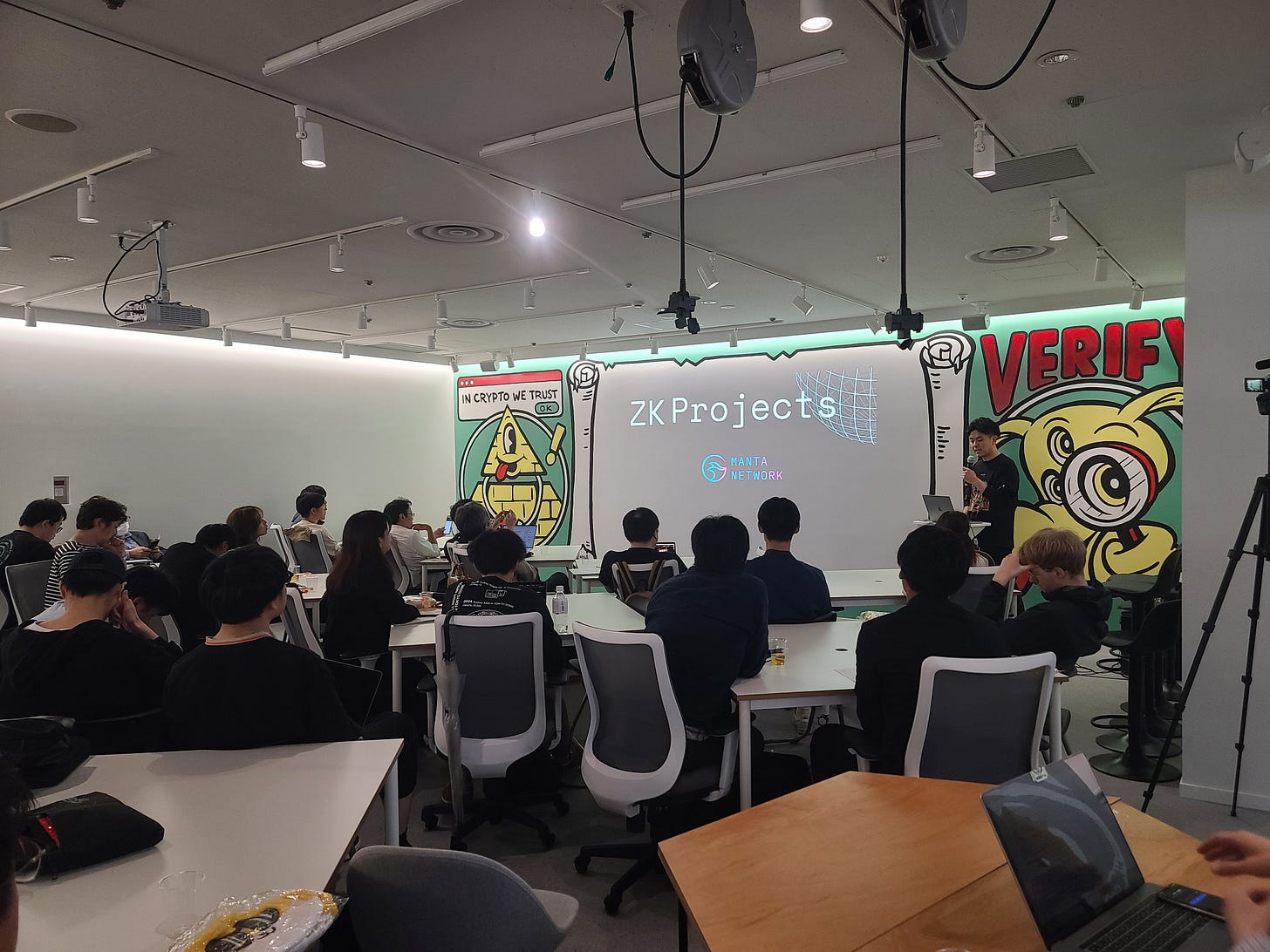What is WaveHack Global offering $300,000 total to product developers? / @akindo_io
We asked kinjo-san about the ongoing "WaveHack Global" event.
Good morning.
This is mitsui from web3researcher.
Today's article is an interview with Mr. kinjo, an AKINDO Founday. We asked him about the ongoing "WaveHack Global" event.
-First of all, please introduce yourself.
Yes, my name is KINJO. We develop and manage AKINDO, Japan's largest web3hackathon platform.
In nearly a year and a half, I have supported more than 30 hackathons as well as workshops, idea sessions, meetups, parties, and other projects that want to create a builder community. We have been recognized as having the best builder community in Japan and have also supported hackathons for top global projects such as Aptos, ZkSync, Scroll, and XRP Leisure.
We also hold our own hackathon events, and one of the most exciting was the Tokyo web3 Hackathon held in the fall of 2022. Including the preliminary study session, about 800 people entered the event, and more than 100 products were submitted. This event led to the impression that "kinjo is the name of the game when it comes to hackathons," and we have been providing support for the planning of various hackathons.
-Please tell us about your career to date.
I have been in the startup internet area for over 10 years. For example, I was involved in the launch of "BASE", an easy way to create an online store, as the third member of the team and was responsible for the initial growth of the company around 2013.
Before that, I quit the web advertising agency I joined as a new graduate to start my own business, and before joining BASE, I had tried to start my own business.
I started my own company in 2016 and since then I have created and pivoted between various products. It feels like we have created dozens of products.
There was a time when I was devoted to the crypto area during the crypto bubble around 2017. However, the winter of 2018-2019 was tough and I took a break from it and made a video app, a Zoom event hosting app, and an app for Instagram.
However, right now it's hard to grow a product for ToC; it gets rolled up by platformers like TikTok, Insta, etc. In the midst of all this, I was attracted to the concept of web3 data ownership and decentralization, and have been betting full time on the web3/crypto space for about 3 years now. I feel like I've always been a player and a gunslinger.
-Can you give us an overview of AKINDO and the WaveHack Global that you are starting?
As for AKINDO, when I joined web3, I was particularly excited about the context of DAO among the various elements of DeFi, NFT, games, etc., and started digging deeper from there. I found the concept of a new organizational structure and the idea of DAO being open globally and having optunity for everyone interesting.
Initially, we were trying to create something like a crypto version of Indeed, where anyone can easily do the work. In today's terms, it is a service like Galxe or Layer3. However, as we conducted various interviews, we found that engagement with so-called bounty boards was low, and we came to believe that a hackathon would be the best approach instead.
Since that time, large-scale hackathons have been held frequently in the web3 area, and projects in the infrastructure area were spending large amounts of money to increase the developer community. I saw the potential there and steered the hackathon around the summer of 2022.
AKINDO is a one-stop platform for virtual hackathons that provides all the necessary functions for a hackathon, from creating a hackathon LP to accepting entries, communication, submissions, judging, and on-chain transfer of prize money.
However, just creating a platform is a breeze, so to create use cases for the product, we held our own "Tokyo web3 Hackathon" and established a certain position in Japan.
However, in the course of running hackathons, we have noticed that there is a disconnect between the incentives of the organizers and the participants. The organizers want to expand the ecosystem and build engagement with participants over the long term, while the participants see it as a weekend memory-making, activity, and learning opportunity. While demos and MVP-level products are produced, the incentive to continue development afterwards is weak.
That is why we began offering WaveHack.
It is 10 times more efficient than traditional hackathons and grant programs to expand the ecosystem and build stronger engagement. The system automatically distributes grants based on ongoing development updates and works transparently with smart contracts. We call it the "Grant Distribution Protocol."
-For example, if I were to create Dapps at Aptos, would you imagine that I could keep applying for the same product, updating it every week?
That's right. The basic concept is "Progress to Earn", which is a model to evaluate the progress of updates. In an ideal case, let's say mitsui has an existing product on ethereum. If you port that app to the Aptos base and deploy it, you are bringing a new app to the Aptos ecosystem, and it should be highly valued.
Not only that, but regular app development does not immediately result in sales after an update. But if you report updates through WaveHack, you can get an ongoing subsidy for the difference. It is like a basic income where you get paid just for your daily activities. The evaluation period can be two weeks, or three days, or whatever is flexible depending on the project.
-A little detail, for example, if I apply the first time, and the next time I do not apply, but continue to improve the product, and then apply again 3 months later, will my progress from the time of the first application to 3 months later be evaluated?
You are right. If it is several months between one application and the second update, there will be quite a difference. In that case, it would be a very high evaluation target.
To put it more abstractly, the voters will vote based on the judging criteria in terms of which updates will bring the most value to the ecosystem among the products submitted for each Wave. So, in the example of your question, the answer is that it would be rated quite high.
-I see. So you are applying for updates rather than the product itself?
Yes, that is the image. If you have an existing product, optimizing it for recruitment and deploying it to the chain you are recruiting for is one update that will be evaluated.
For example, I think optimizing an existing app to fit the ecosystem would have a huge impact compared to an update that just adds buttons or changes the front design. That kind of thing is greatly appreciated.
So, I personally think that this program is a crazy opportunity for those who have existing products.
-Are there other opportunities outside of development?
Yes, there is. In MTGing with one of the projects, there was talk of putting it out on the subject of documentation and content creation as well.
The project has organized documentation, and WaveHack, which will be evaluated in the form of blog posts and videos explaining it, will be coming out in the future.
WaveHack is so versatile that we believe it is possible to come up with a plan, evaluate it, and set milestones for its realization.
-Do projects like WaveHack exist globally?
I feel that Gitcoin is pretty close in terms of similar philosophy. In terms of hackathon platforms, there are several such as DoraHacks, DevPost, DevFolio, etc., but I don't think there is much differentiation, or that it would be tough to do it here alone, market size-wise.
On the other hand, I see no current work that is working well with something exactly like WaveHack.
-Back to the topic a bit, I think you are right about the challenges of hackathons and grants you mentioned earlier, but why do you think the project side continues to do things the way they are?
Yes, that's exactly what I think is wrong, and to be honest, on an honest basis, hackathons and grant programs are a crazy legacy method. It's a concept that has been around since before bitcoin and crypto and before the internet.
The evaluation process, remittance process, and grant programs are also determined by updating documents and conducting interviews to evaluate each and every one of them in a very geriatric manner. Also, each time, we send the evidence documents for each milestone. It's a huge hassle. I have received grants, but the fact that I still do it is, in my opinion, a "why?" I feel like I'm still doing it. To be honest, I also feel that I am continuing to do it because of inertia.
It may be a bit like being dragged along by the excitement of a physical hackathon such as ETH Global, and doing it virtually with a similar structure.
-I understand that there are global projects participating in this WaveHack Global. I would like to hear the reactions when you talk to those projects, what areas are sticking out to you, and what is the temperature.
After all, when I told this story, it was exactly the kind of grant and hackathon that I didn't think was efficient and tedious to run or participate in. So there are a few projects that come on board with their eyes wide open, as if they have been waiting for something like this. I have a good feeling that if we can get them to understand what we are talking about, it will stick.
However, I have to admit that my English is not good enough, and if I could communicate with more enthusiasm, I would be able to increase the number of projects that stick. But basically, if they understand what I am saying, they will adopt it.
I do feel that there is a communication cost to explain the deposit mechanism, voting every two weeks, etc., compared to a simple hackathon, and to get people other than those in charge to understand the system.
This is the reason why WaveHack Global was held in the first place, but the fact is that it was released and ready for use around November of last year, and I went around to each and every project asking, "I made this, can we use it? I went around to each and every project and asked, "I made something like this, can we use it?
We had started earlier with Aptos and others, but because it was a new tool and there were no case studies, it took time to get the existing hackathon and grant budget allocated here, and in some areas it was troublesome to do something new.
Therefore, we thought it would be easier to get people on board if we built a box and had everyone gather here, as we did at the last Tokyo Web3 Hackathon. We decided on our own theme and decided to do it with gusto. We started planning this event in October and November of last year, and finally we were able to announce WaveHack Global.
It is very easy to get on board when you create these boxes. How we make the first examples is important, and once a certain number of work is done, the projects that did not participate this time should be able to say, "Let's deposit the grants and hackathons to WaveHack for now.
My thought is that the entire budget of any hackathon or grant program should be applied to WaveHack. I believe it should be optimized and the money should be distributed more transparently and more efficiently to the right builders.
-What level of engineering is required to participate in WaveHack Global?
As for the level of engineering, I think the minimum requirement would be to be able to deploy smart contracts to each partner's blockchain. It must be deployed and work properly.
-Is participation by one person or a team acceptable?
Either is fine; you can participate alone or as part of a team.
The point of WaveHack Global is that there are multiple WaveHacks running at the same time, so you can submit at the same time. For example, you can submit to Aptos for the first two weeks, XRP Ledger for the next two weeks, and so on, while replacing the same product on each chain as you participate.
We can also introduce them into middleware and libraries like The Graph and Superfluid as well as chains, and then issue updates at the same time.
So it is a rather rare program that offers an efficient chance to win prize money with a single product.
-I think the application layer will become very important in the web3 industry in the future. I think developers are absolutely necessary in this context. What are your thoughts on developer support through grants and subsidies such as WaveHack? Could you reiterate the importance of the application layer and developer support?
This is exactly where I feel strongly. You often use the word narrative. For example, right now there are trends like EigenLayer and meme coins. But I believe that a much larger mega-narrative is definitely the shift from the infrastructure layer to the application layer.
Until now, the concept of "fat protocols" has been seen as having value in the infrastructure layer, and that is where the money and funding has been gathered. With token listings, VC funding, etc., money is being pooled in the infrastructure layer.
But where the money goes is basically used to increase the number of applications that are built on top of the infrastructure. The most important thing for the infrastructure layer is the app builder. Without app engineers, the land is nothing but blight. You need app builders to build stores and malls there, and the money will be distributed to the app builders.
I feel that the infrastructure layer is already in place to some extent, so the application layer will be responsible for solving the world's problems and promoting mass adoption. In order to reach hundreds of millions of users, it is essential to have products that are actually usable.
We believe that quantity is better than quality for this purpose. We think that the process will be to release a really large number of applications, find the ones that have room to grow, and then invest, acquire, and provide generous support for them.
Warpcast, for an obvious example, represents the killer app of the year, and I think web3social and gamification are definitely coming. However, I don't think app builders have the concept of getting funding from VC's. It's a world where you make 100 apps and win one, so I imagine the money comes from the infrastructure layer rather than from VC's.
I hope that the money for this will flow from the hackathons and grant programs that have been in place and will now flow through WaveHack.
Do you think that SocialFi apps such as Farcaster will spread to non-web3 natives?
Of course it will spread. If it does not spread, it will remain a niche area, and I am sure the players are eager to spread it. However, we are still waiting to see what will stick the most and what elements will trigger the spread of the game among the general public.
I think the gambling factor is what's driving more users now, but I don't think the other factors have been righted yet. To be honest, I also use X more than Warpcast by far, I think the difference between Farcaster and X is that data is not banned or censored, but I still think the network effect, the number of users and the UX are more reasons to use it.
-When you set the theme for WaveHack Global, did you consider areas that will lead to killer apps in the future, or application areas that will be exciting?
That's exactly right. I too am reflecting my current killer app predictions on the three main tracks this time around: the first is the AI Track, the second is the Game+Social Track, and the third is the Utility Track.
Basically, I think that products that combine AI, games, and social, and these three well, will grow. AI will support the initial onboarding, increase the value of social games, and become their own asset. I have an image of those things growing.
I think it is important to have the skills to create web2 products in a normal way.
-How different is web3 product development compared to web2?
To be honest, 80-90% of web3-based products are no different from regular web2 products. In terms of architecture, only the last part of remittance uses smart contracts and blockchain, so it is basically the same as the way we think about creating ordinary products.
It is just enough to use a little bit of the technology that the ecosystem is pushing, such as data storage, value preservation, value exchange, and zero-knowledge proof security technology.
This WavebHack may be appreciated for its robust use of technology, but on the other hand, I think it is also good to think issue first.
-If you are an engineer with knowledge of web2, the cost of learning web3 is not that high.
That's right. I have an acquaintance who was able to create something that worked after studying for an hour a day for a couple of weeks.
There are blockchains that can be written in traditional languages such as Rust and TypeScript, and although Solidity is said to have its own quirks, it is relatively simple to create simple transaction processing and NFT-related tools.
-I see. From what you just said, it sounds like a team will be created to mass produce apps on various protocols, chains, and infrastructure layers in the form of a development studio. That sounds interesting.
I think it is totally possible. For example, a corps that would deliver one every week for Aptos. Then apply for grants and have them evaluated.
However, there may be hurdles like difficulty in making connections with the core team or lack of a pipeline. In that regard, we hope that the WaveHack protocol will work as an interface.
We can get evaluations and comments directly from the core team, and we can have our product used and evaluated by the ecosystem audience, such as the project's community members and token holders. That means that the products we create will get a response.
From the builder's point of view, what is more exciting than money is getting real feedback and users. They get access to the right targeted ecosystem of end users without having to advertise. I feel that would be WaveHack's most significant value proposition.
-I understand that this WaveHack Global will be held for about six months, and you are aiming to continue to have people participate in global projects to spread the WaveHack protocol.
You're right - ideally, once WaveHack Global is done, it should be in a state where other projects are using it on their own.
For example, Optimism and Arbitrum have their own grant programs through WaveHack. Right now, WaveHack is a feature within the AKINDO platform, but in the future we would like to open source it so that it can be white labeled and introduced to other platforms.
I would like to make WaveHack Global a place that will serve as a catalyst for such people.
We also plan to hold workshops and workshops two or three times a week. We would like to make this an opportunity to learn and at the same time, a chance to have our output evaluated and get paid for it.
We strongly hope that this program will be a global showcase of Japan's web3 and blockchain potential.
-I am very interested in the newest and most exciting new products and services.
Yes, WaveHack Global is essentially an acceleration program. Not only do you get a budget for the product you are developing, but you also have the opportunity to get feedback, connect with the ecosystem, and build an audience through demo days and much more.
While the event is still in progress, each Wave will be evaluated on a Wave-by-Wave basis, so there is no problem to join in the middle of the event, and anyone can submit a product for the ecosystem of interest at any time.
We are now also rolling out a check-in WaveHack where you can earn about $50 just for submitting a product, so we recommend that you register there first.
Another key point is that as a Demo Day Partner, we work with large global conferences such as IVS Crypto, ETHCon, and WebX.
What's more, the most highly rated teams at WaveHack Global will get to participate in a demo day at their respective conferences. This is the best opportunity to present in front of an audience of tens of thousands of people.
I know many of you have been to IVS Crypto in the past, but it is an interesting event with tremendous size and heat, and for WaveHack Global, we are having the largest venue at IVS Crypto held for the afternoon of the second day. I hope you can submit your work there.
By the way, you can enter WaveHack Global if you sign up more than once. You can, of course, join in the middle of the program. Once you enter at home, you'll be asked to enter again individually in each WaveHack program.
Team builds can also be done on our Discord channel, so we hope that you will be able to find your friends there as well. We will do our best to support you in building your team.
(Additional interviews after video coverage below and after the program begins.
-How are the applications coming in now that the program has started?
zkSync was amazing. 44 projects were collected and grants were distributed to many products.
The other thing we were evaluating yesterday when we did the AMA with Manta was MapX game products like Pokémon GO. Also, when we did the AMA with MetaMe, we had Machiwabi on the stage. Their products have also received quite a bit of recognition, and some of their products have received grants of nearly $1,000.
-How was the turnout for the event?
The Guess Summit was very exciting. It was with mixed feelings that we had a gaggle of participants without having to work harder to attract more people than at the kick-off event (laughs), but we are thinking of doing a second one somewhere else. Other events such as the ZKP event and the On Chain Summit were particularly interesting.
-Please tell us about your recent Wave Hack efforts.
We are stepping up our global promotions, hosting AMAs and collaborative events, and working with community partners.
-What are the big mountains in your immediate future?
We plan to rent the largest venue at IVS Crypto and develop a demo day event there.
We would also like to broaden our base and create an opportunity for web2engineers to participate by partnering with a domestic company that everyone knows as the main sponsor. We want to make this an opportunity to attract non-sequential participants.
In the future, we hope to be like a crypto version of IVS Launchpad.
"Official Link."
Disclaimer:I carefully examine and write the information that I research, but since it is personally operated and there are many parts with English sources, there may be some paraphrasing or incorrect information. Please understand. Also, there may be introductions of Dapps, NFTs, and tokens in the articles, but there is absolutely no solicitation purpose. Please purchase and use them at your own risk.
About us
A web3 newsletter delivered in five languages around the world. We deliver various articles about web3, including project explanations, news and trend analysis, and industry reports, every day. You can subscribe for $8 per month ($80 per year) and receive research articles that took 100 hours to complete every day.
Author
mitsui
A web3 researcher. Operating the newsletter "web3 Research" delivered in five languages around the world.
Contact
The author is a web3 researcher based in Japan. If you have a project that is interested in expanding to Japan, please contact the following:
Telegram:@mitsui0x
*Please note that this newsletter translates articles that are originally in Japanese. There may be translation mistakes such as mistranslations or paraphrasing, so please understand in advance.


